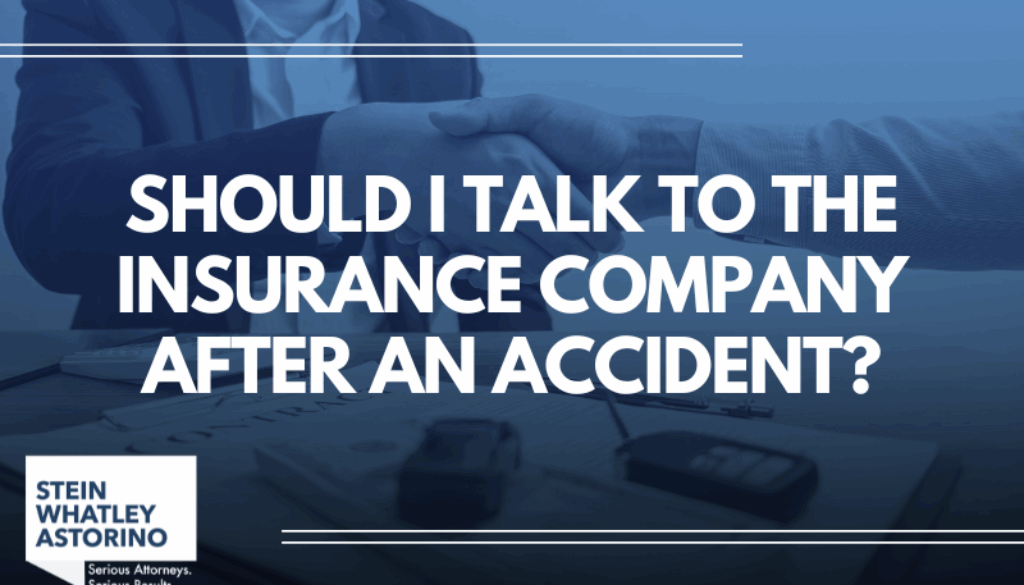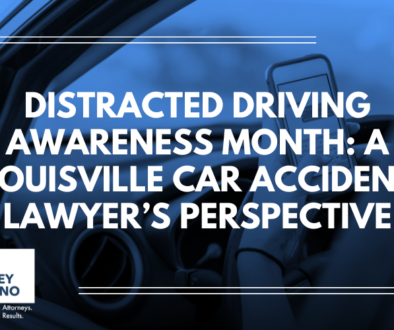Should I Talk to the Insurance Company After an Accident?
Should I Talk to the Insurance Company After an Accident?
Should I talk to an insurance company after an accident? It is a question I hear often. As a personal injury attorney, I have spent years watching insurance companies protect their profits at the expense of injured victims. When you suffer an injury—whether from a car crash, a slip and fall, or any other accident, the insurance adjuster may seem helpful. They may act like they care about your well-being. But make no mistake: they work for the insurance company, not for you.
If you are injured, one of the most important decisions you can make is to avoid speaking directly with the insurance company. It may seem harmless to take a phone call or answer a few questions. But that conversation can seriously damage your case. I will explain why.
Should I Talk to the Insurance Company if it is My Insurance Company?
Should I Talk to an Insurance Company if it is My Insurance Company? They work for me, right? Insurance companies exist to make money. Every claim they deny or reduce puts more money in their company’s pockets. The adjuster may sound friendly, but their loyalty lies with their employer. Their job is to settle claims for as little as possible. This can include uninsured motorist claims (UM), underinsured motorist claims (UIM), and Personal injury protection claims (PIP). They receive training to minimize payouts, and that includes using your own words against you.
Our Louisville injury lawyers have represented countless clients who thought they were simply “explaining what happened.” In reality, they gave the insurer ammunition to deny the claim or shift the blame. Once you say something on record, it becomes part of your case—even if you misspoke or did not have all the facts.
Should I Talk to the Insurance Company if They Request a Recorded Statement?
Soon after a car accident or truck accident, the insurance adjuster will likely call you and ask for a “recorded statement.” They may claim this step is routine or required. It is not.
You have no obligation to provide a recorded statement to the other party’s insurer. I advise my clients to never do so without legal counsel present. Adjusters often ask leading questions, catch you off guard, and twist your responses. They aim to get you to say something inconsistent, speculative, or harmful.
Even a simple comment like “I’m feeling okay” can be used to argue that your injuries are minor or nonexistent. Insurance companies do not need the whole truth—they just need a soundbite they can use to hurt your claim.
Should I Talk to the Insurance Company if They Offer a Quick Settlement?
Insurance companies often move fast after an injury. Adjusters do not want to give you time to talk to a lawyer. They know that once you get legal advice, you are less likely to accept a lowball offer. So, they call early and often. Insurance adjusters offer quick settlements sometimes before you even understand the full extent of your injuries.
This tactic works because injury victims feel overwhelmed. Medical bills pile up. Time off work creates financial pressure. A check, even a small one, might seem like relief. But once you accept that offer, you sign away your rights. You cannot go back and ask for more money if complications arise.
In almost every case, the first offer falls far below what your case is worth. Our experienced injury attorneys have seen clients offered $5,000 when their injuries ended up costing over $100,000. Once the release is signed, there is no undoing it.
Can What I Say Be Used Against Me if I Talk to the Insurance Company?
Anything You Say Can—and Will—Be Used Against You. You have likely heard this phrase in criminal law, but it applies in injury claims, too. Car Insurance companies record everything you say. They use investigators. They scour social media. They look for ways to paint you as dishonest, careless, or uninjured.
Let us say you tell the adjuster you were not looking when you slipped. Or you say you “felt okay” right after the truck accident. Maybe you tell them you “might have been speeding a little.” The adjuster will take those words and argue that you caused the accident—or that your injuries are not serious.
Once they build that narrative, they will stand by it, no matter how many medical bills you submit. That is why I tell my clients to let me handle all communication with the insurance company. I know what to say—and more importantly, what not to say.
Can They Misrepresent the Policy or the Law if I Talk to the Insurance Company?
Another tactic insurers use involves misleading or confusing statements about your legal rights. They may claim that the policy only covers certain types of injuries. Adjusters may argue that you bear responsibility based on some obscure technicality. Sometimes they suggest you do not need a lawyer—or that hiring one will delay your settlement.
These statements often contain partial truths, twisted facts, or outright lies. Without legal knowledge, it is hard to know the difference. But once you accept their interpretation, you may unknowingly give up a valid claim.
Our personal injury lawyers have had clients who were told the policy limit was $25,000, only for us to discover another $100,000 in umbrella coverage. Without legal representation, they would have settled for a fraction of what they were entitled to receive.
Should I Talk to the Insurance Company if I Do Not Know the Full Extent of My Injuries?
Injuries often worsen over time. What feels like a sore neck might turn into a herniated disc. A “mild” concussion may evolve into persistent post-concussive syndrome. If you speak with the car insurance company too soon, you may downplay your injuries without realizing it.
Doctors need time to assess your condition fully. If you rush to describe your injuries to the insurance adjuster before that process plays out, you risk underestimating your damages. That mistake gives the car insurance company an excuse to offer less—and argue you are exaggerating later.
I encourage clients to wait until they reach maximum medical improvement (MMI) before negotiating any car accident settlement or truck accident settlement. According to the United States Department of Labor, “Maximum medical improvement” (MMI) is when the covered illness is stabilized and is unlikely to improve with or without additional medical treatment. That way, we know the true cost of treatment, recovery time, and long-term effects.
Will They Blame Me for the Accident if I Talk to the Insurance Company?

Insurance companies often try to shift blame to avoid paying. They may argue that you contributed to your injuries or caused the car accident entirely. In states with comparative fault laws like Kentucky, even partial blame can reduce your compensation. However, in states with modified comparative fault laws like Indiana, if it can be twisted that you are 51% or more to blame then you will be barred from any recovery.
If you speak freely to the insurer, they will look for anything they can use to support this narrative. Statements like “I didn’t see the other car” or “I wasn’t watching where I stepped” might seem innocent. But insurers spin them into admissions of fault.
Our experienced injury lawyers in Louisville protect our clients by making sure the facts come out in a structured, accurate, and legally sound way. When we speak to the car insurance company, we come prepared with evidence, medical records, and legal strategy.
Level the Playing Field with a Personal Injury Attorney
Car insurance companies hare lawyers, adjusters, and investigators on its side. If you go it alone, you bring none of those resources to the table. You walk into a negotiation with one hand tied behind your back.
Hiring a personal injury attorney changes that. We know the tactics insurers use. Our trusted injury attorneys have dealt with their tricks, their delay tactics, and their misleading claims. We fight to make sure our clients receive the full and fair compensation they deserve—not just what the insurer feels like paying.
And here is something most people do not realize: you do not pay upfront. Most personal injury attorneys, myself included, work on a contingency fee basis. That means we only get paid if you recover compensation. You owe us nothing unless we win.
Let an Injury Attorney Handle the Communication
When you hire an injury lawyer, the insurance company can no longer contact you directly. That protection alone gives you peace of mind. You no longer have to worry about saying the wrong thing or being pressured into an unfair deal.
Instead, your personal injury attorney manages all correspondence, gathers evidence, calculates damages, and builds your case. We speak the insurance company’s language, and we do not let them take advantage of you.
How Can I Protect My Rights and Protect My Future?
If you have been injured in an auto accident or truck accident in Kentucky or Indiana, the stakes are high. Your physical health, your financial future, and your peace of mind all hang in the balance. The car insurance company wants you to believe they are on your side. However, their actions say otherwise.
Do not speak directly with them. Do not give a recorded statement. Do not accept a settlement check without legal advice. Every word you say may become part of the record, and every early move can potentially affect your final outcome.
As Louisville personal injury attorneys, our job at Stein Whatley Astorino is to protect your rights and maximize your recovery. I have seen too many people lose out because they trusted the wrong party. Let an experienced injury lawyer handle the insurance company. Focus on healing, we will take care of the rest.
Need Help of a Personal Injury Lawyer Near Me?
If you or a loved one suffered an injury, contact our office today for a free and confidential consultation. Our injury lawyers serve all of Kentucky and Indiana. We will evaluate your case, explain your rights, and deal with the insurance company so you do not have to. You do not pay anything unless we win.
Call us today. 502.553.4750
You do not have to face the insurance company alone. Stein Whatley Astorino is on your side.
Serious Attorneys. Serious Results.




